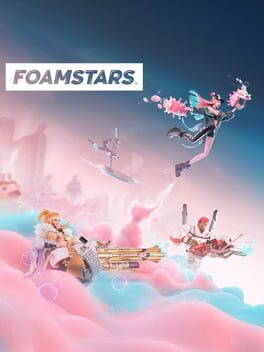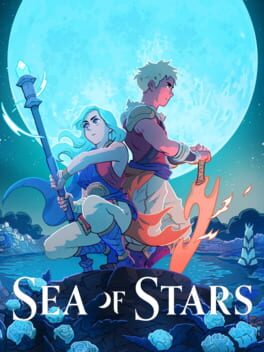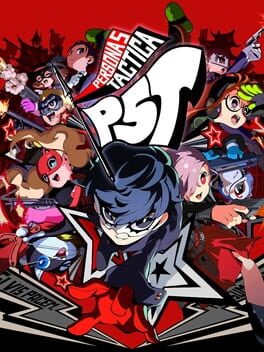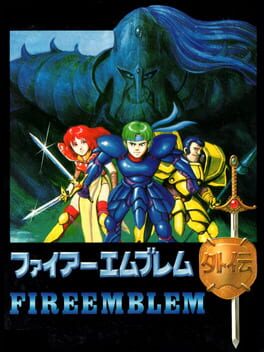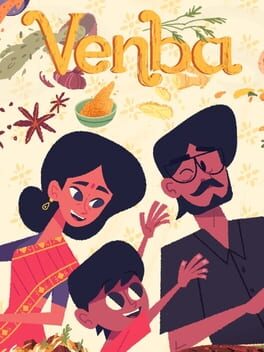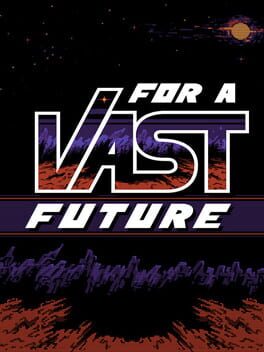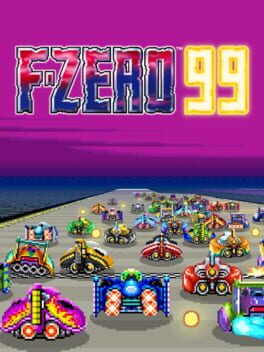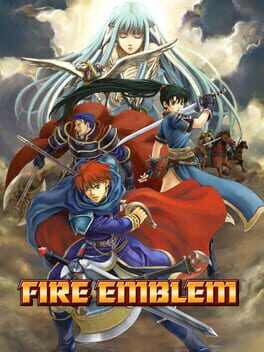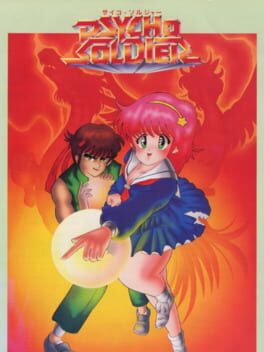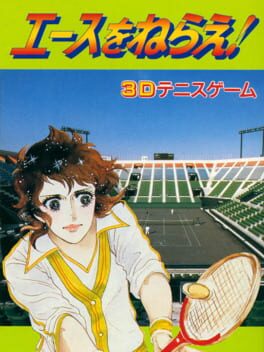tradegood
2024
This is what corporate art looks like. It's so approachable by design that it feels hollow. The theming is bizarre, the cheerful bubblegum pop aesthetics feel uncanny, and stuff like "FriYAY" and "replacing kills with chills" feels like it was workshopped by all the most out of touch colleagues in your office trying to make something safe for the Fortnite generation. There's also a strange confluence of different art styles from the crisp 3D to the flat fiverr-style animated segments, to the literal photographs of wildlife that is incorporated as portraits and album art.
The whole experience feels blatently KPI driven. Any pretense that you're playing something that wasn't cooked up by corporate suits is stripped away when you see the $45 fee for a skin. In a way it's a unique artistic vision, in that, it feels so heavily designed as a set of deliverables by project managers and made for business users.
As a result, it's not quite the next evolution of Splatoon that it wants to be. The single player game modes are where the game hooked me but it's very short and leaves a bit to be desired. Not sure how balanced the PvP is. It's very chaotic, and there are some odd design choices such as a game mode reliant on your team's star player to stay alive and there's a game over condition when they die. Overall, It's a servicable game and the fun is there, but it's not as interesting as it could be. The game feels like it's targeting such a wide audience that it's meaningless.
The whole experience feels blatently KPI driven. Any pretense that you're playing something that wasn't cooked up by corporate suits is stripped away when you see the $45 fee for a skin. In a way it's a unique artistic vision, in that, it feels so heavily designed as a set of deliverables by project managers and made for business users.
As a result, it's not quite the next evolution of Splatoon that it wants to be. The single player game modes are where the game hooked me but it's very short and leaves a bit to be desired. Not sure how balanced the PvP is. It's very chaotic, and there are some odd design choices such as a game mode reliant on your team's star player to stay alive and there's a game over condition when they die. Overall, It's a servicable game and the fun is there, but it's not as interesting as it could be. The game feels like it's targeting such a wide audience that it's meaningless.
2023
Sea of Stars is superficially impressive, but as you spend time with it, it's impossible to ignore its gigantic flaws in design. While the game's pixel art, music, and exploration are impressive, the writing and battle and progression system drag it down tremendously.
This game suffers from having a failure to launch. You are stuck on a guided path and drip-fed mechanics at a rate that is unacceptable. The battle system gives a great first impression by combining timed hits, a break system, and characters synergizing. After the first couple hours I was ready to unlock new skills and start having some strategic battles... but it took 8 hours to add a fourth character and third special attack. I assumed that surely now it would open up, but it got stale again after an hour or two, and the game took another 8 hours before adding ultimate attacks and a 5th character.
Having all characters level up at the same time and assigning points to them also seemed interesting at first, but it really made it really feel like your level and choices had no effect on the battle system. It's a game with a lot of forced encounters and not designed around grinding, but it always feels easy. The challenge comes from preserving your resources between save points, which are pretty generous.
The battle and progression system's limitations would have been excused if there was a good narrative behind the game, but the story lacked focus and needed a lot of editing. The first hour is extremely slow, and the story only gets more long-winded and pointless as the game goes on. The story makes pacing very uneven, with smooth sailing when the story is in the background, but long story diversions drag out everything. The story is told in a way too complicated for its own good. The idea of a true ending might tantalize some players but the base story is not noteworthy enough to earn my desire to go for it.
The game meanwhile plays a little bit of a trick on the audience by convincing them it's streamlining things, when what its streamlining isn't exactly a problem. The exploration is based around unlocking shortcuts on the map, the enemy encounters are telegraphed, all party members gets upgraded at the same time including fainted characters, and the game has party members resuscitate themselves without having to use an item. But these aren't 'problems' to fix. Having a phoenix down in battle or characters at different levels or the looming threat of a unexpected encounter make JRPGs more strategic. You aren't 'saving the player time' when your game still has areas with too many battles and too much mandatory dialogue. In fact, not being able to escape battles can be extra annoying with respawning or cloning enemies.
Ultimately, I don't think this game really understands the full appeal to the games it tries to imitate like Chrono Trigger/Golden Sun/Secret of Mana. Those games give you a sense of freedom that this game lacks. Even if it's linear, you can break open their systems as you see fit. This game however refuses to take off rails and once you understand the puzzle you want it to do, it loses the charm.
This game suffers from having a failure to launch. You are stuck on a guided path and drip-fed mechanics at a rate that is unacceptable. The battle system gives a great first impression by combining timed hits, a break system, and characters synergizing. After the first couple hours I was ready to unlock new skills and start having some strategic battles... but it took 8 hours to add a fourth character and third special attack. I assumed that surely now it would open up, but it got stale again after an hour or two, and the game took another 8 hours before adding ultimate attacks and a 5th character.
Having all characters level up at the same time and assigning points to them also seemed interesting at first, but it really made it really feel like your level and choices had no effect on the battle system. It's a game with a lot of forced encounters and not designed around grinding, but it always feels easy. The challenge comes from preserving your resources between save points, which are pretty generous.
The battle and progression system's limitations would have been excused if there was a good narrative behind the game, but the story lacked focus and needed a lot of editing. The first hour is extremely slow, and the story only gets more long-winded and pointless as the game goes on. The story makes pacing very uneven, with smooth sailing when the story is in the background, but long story diversions drag out everything. The story is told in a way too complicated for its own good. The idea of a true ending might tantalize some players but the base story is not noteworthy enough to earn my desire to go for it.
The game meanwhile plays a little bit of a trick on the audience by convincing them it's streamlining things, when what its streamlining isn't exactly a problem. The exploration is based around unlocking shortcuts on the map, the enemy encounters are telegraphed, all party members gets upgraded at the same time including fainted characters, and the game has party members resuscitate themselves without having to use an item. But these aren't 'problems' to fix. Having a phoenix down in battle or characters at different levels or the looming threat of a unexpected encounter make JRPGs more strategic. You aren't 'saving the player time' when your game still has areas with too many battles and too much mandatory dialogue. In fact, not being able to escape battles can be extra annoying with respawning or cloning enemies.
Ultimately, I don't think this game really understands the full appeal to the games it tries to imitate like Chrono Trigger/Golden Sun/Secret of Mana. Those games give you a sense of freedom that this game lacks. Even if it's linear, you can break open their systems as you see fit. This game however refuses to take off rails and once you understand the puzzle you want it to do, it loses the charm.
2023
I went into P5T with mixed feelings. This is the 4th or 5th spinoff and it's been about 6-7 years since we first met the cast. For a game that was originally about 'taking your time' and letting time and experience change you, every new release aside from Royal has flattened the characters more and more. I wasn't expecting a ton of character development, nor is there any to be found.
As a Persona game there's a requisite amount of storytelling and visual novel elements so even when there's not much to say, half or more of the game takes place in dialogue exchanges. The character interactions hit all the familiar beats and the humor is there, but it never feels fresh. Ryuji and Morgana are at each other's throats, Yusuke is aloof, Haru is naive, etc. All of this feels like it's weighing the game down a bit, and I don't think the new characters or their troubles particularly carry the game. I like Erina and Kasakube well enough but there's not much substance to work with.
As far as gameplay, this game is very easy on Hard, and on Merciless it just seems to add more enemies to the point where it feels tedious instead of like a real challenge. Each character gets a "1 More" every time they knock down an enemy, and additionally you get an overpowered triangle attack, so it feels very easy to exploit these things. The only real challenge comes from beating these little puzzleboxes in as few turns as possible. It never feels like you're in any danger of actually getting killed or a game over. Instead its like the game wants you to eventually win, and come back later to get a better score. I understand some people may like gameplay loop but I think it takes the stakes out of the game.
Even if a character gets KO'd there's a baton pass so that they get replaced by someone with full HP and SP, so it can be advantageous to kill your own character. The game also has a cool spin on elemental attacks, where they work as status effects, so things like Bufu freezes, Garu knocks enemy back, and Psio hypnotizes the enemy... but it doesn't really get more complex than that and adding a few exploding barrels to the maps.
It's a very generous game if it's what you're into, and I can see why some people would love it, but it's just missing the stakes I am looking for from a strategy game.
As a Persona game there's a requisite amount of storytelling and visual novel elements so even when there's not much to say, half or more of the game takes place in dialogue exchanges. The character interactions hit all the familiar beats and the humor is there, but it never feels fresh. Ryuji and Morgana are at each other's throats, Yusuke is aloof, Haru is naive, etc. All of this feels like it's weighing the game down a bit, and I don't think the new characters or their troubles particularly carry the game. I like Erina and Kasakube well enough but there's not much substance to work with.
As far as gameplay, this game is very easy on Hard, and on Merciless it just seems to add more enemies to the point where it feels tedious instead of like a real challenge. Each character gets a "1 More" every time they knock down an enemy, and additionally you get an overpowered triangle attack, so it feels very easy to exploit these things. The only real challenge comes from beating these little puzzleboxes in as few turns as possible. It never feels like you're in any danger of actually getting killed or a game over. Instead its like the game wants you to eventually win, and come back later to get a better score. I understand some people may like gameplay loop but I think it takes the stakes out of the game.
Even if a character gets KO'd there's a baton pass so that they get replaced by someone with full HP and SP, so it can be advantageous to kill your own character. The game also has a cool spin on elemental attacks, where they work as status effects, so things like Bufu freezes, Garu knocks enemy back, and Psio hypnotizes the enemy... but it doesn't really get more complex than that and adding a few exploding barrels to the maps.
It's a very generous game if it's what you're into, and I can see why some people would love it, but it's just missing the stakes I am looking for from a strategy game.
Freed from the shackles of traditional video game structure, the FF7 team went so far above and beyond that it's hard to fathom. No one is coming to this game without having played the original or Remake, so the heavy lifting in terms of story and characters is already accounted for. The game instead focuses its ambition entirely inward, creating the most expansive and compelling game of the AAA Open World Action-Adventure RPG genre -- by embracing Final Fantasy 7 to the highest extent.
They took the winning formulas of FFVII Remake's battle system, and overlayed 100 hours worth of quests, minigames, and exploration that consistently surprises and delights. While some elements may feel a little like chores, it never feels compulsary (unless you plan to 100% the game). Instead all of this adds up to constant new experiences that add color to the world. Even just walking through a new zone, seeing all of the unique assets created for the game makes you feel like you're feasting on the most premium digital world ever created. The most impressive thing about this is that the team didn't need to do any of this. They could have had a strict chapter structure like Remake with smaller cities a faux open world, and we all would have accepted that. But instead they wanted to make something vast and worthy of the ambition of a Final Fantasy Game. It's not a perfect game, but even when things don't quite works.... it works! It's the most imperfect game I would say is a 10/10.
Of course having such a big game take place in the first half of the second act of FF7, the story's stakes and character development is limited by default. There are of course plot twists and the big question everyone is wondering about what will happen to Aerith. It was obviously a challenge to keep a sense of forward momentum and keep the big conflict at the top of mind, but I think they did succeed, even when they made choices to delay some plot points. There is a lot of repetition but still feels well paced.
Part 3 still has a tall task ahead of itself, especially with the ways that this game raises the stakes above Remake. However I do have faith and I think we will all look at The FF7 Remake Series as a real pinnacle of long-form storytelling.
They took the winning formulas of FFVII Remake's battle system, and overlayed 100 hours worth of quests, minigames, and exploration that consistently surprises and delights. While some elements may feel a little like chores, it never feels compulsary (unless you plan to 100% the game). Instead all of this adds up to constant new experiences that add color to the world. Even just walking through a new zone, seeing all of the unique assets created for the game makes you feel like you're feasting on the most premium digital world ever created. The most impressive thing about this is that the team didn't need to do any of this. They could have had a strict chapter structure like Remake with smaller cities a faux open world, and we all would have accepted that. But instead they wanted to make something vast and worthy of the ambition of a Final Fantasy Game. It's not a perfect game, but even when things don't quite works.... it works! It's the most imperfect game I would say is a 10/10.
Of course having such a big game take place in the first half of the second act of FF7, the story's stakes and character development is limited by default. There are of course plot twists and the big question everyone is wondering about what will happen to Aerith. It was obviously a challenge to keep a sense of forward momentum and keep the big conflict at the top of mind, but I think they did succeed, even when they made choices to delay some plot points. There is a lot of repetition but still feels well paced.
Part 3 still has a tall task ahead of itself, especially with the ways that this game raises the stakes above Remake. However I do have faith and I think we will all look at The FF7 Remake Series as a real pinnacle of long-form storytelling.
1992
Fire Emblem 2 is a totally different game than any other FE, and has an incredible amount of unrealized ambition that is fascinating to play through. In many ways it's like they just created a standard JRPG first and overlayed FE characters and rules on top of it.
Sometimes a game thoroughly engrosses you and pushes you to a limit, and the last several nights I've been staying up late, addicted to pushing through as far as I could. At 300% speed and with most maps taking less than 10 minutes, I was on the climb and constantly optimizing my strategy. The game benefits by fast forwarding in long sittings, and I think if I took my time with it more I would not have as good of a time.
The game is repetitive and the maps aren't very thoughtfully designed (most are open battlefields), but I felt like it forced me to really understand my team's strengths and weaknesses. Even though accuracy/dodge felt punishing at times, the lack of vulneraries and inventory, surprising difficulty spikes, and not being able to see where you're deploying units, this game really spoke to me.
I love the magic system of this game, every spell costs your healers and sages EXP, but it also costs the enemies EXP so sometimes they will dig their own grave for you. Getting to customize your team felt really good, and every time you gain a promotion it feels significant. The stat growths in general are pretty small though, and I did have some early game stars fall behind later on. Having the option to return to a shrine or cave to grind did help, as there were a few times I was close to promotion with a key player and decided to just stick around until they earned it.
The game's story is great, and I love just hanging out in the different towns. Some of the storylines, such as Zeke and Tatiana said a lot very succinctly. As with any fire emblem game, much of the storytelling happens on a personal level with your units. I lost a few members of my team in dramatic fashion. Mathilda started great but couldn't keep up, and fell to the zombie dragon swarm. Atlus was ambushed by summons and I lost him in act 4. Even up to the last battle, I lost my dependable scout Robin in a very heartbreaking but attempt to move quickly to the final boss.
But I also had some characters really surprise me. My sniper Python was pretty useless most of the game until promoting to Bow Knight, and saved us in countless scraps. I was having a hard time feeding Est enough EXP to promote her, but once I did, the whitewing sisters made Celica's route a snap. Jennie and May also ruled. While Alm was stuck in the volcano, Clair almost solo killed 20 dragons.
Once Tatiana gained Fortify, the most broken healing spell in the game, I had mathematically won by teaming her with Silk. From there I just enjoyed melting away any enemies that got in my way like butter. The final showdown was truly fantastic. This game gave me a high in a way that I haven't felt in a long time.
Sometimes a game thoroughly engrosses you and pushes you to a limit, and the last several nights I've been staying up late, addicted to pushing through as far as I could. At 300% speed and with most maps taking less than 10 minutes, I was on the climb and constantly optimizing my strategy. The game benefits by fast forwarding in long sittings, and I think if I took my time with it more I would not have as good of a time.
The game is repetitive and the maps aren't very thoughtfully designed (most are open battlefields), but I felt like it forced me to really understand my team's strengths and weaknesses. Even though accuracy/dodge felt punishing at times, the lack of vulneraries and inventory, surprising difficulty spikes, and not being able to see where you're deploying units, this game really spoke to me.
I love the magic system of this game, every spell costs your healers and sages EXP, but it also costs the enemies EXP so sometimes they will dig their own grave for you. Getting to customize your team felt really good, and every time you gain a promotion it feels significant. The stat growths in general are pretty small though, and I did have some early game stars fall behind later on. Having the option to return to a shrine or cave to grind did help, as there were a few times I was close to promotion with a key player and decided to just stick around until they earned it.
The game's story is great, and I love just hanging out in the different towns. Some of the storylines, such as Zeke and Tatiana said a lot very succinctly. As with any fire emblem game, much of the storytelling happens on a personal level with your units. I lost a few members of my team in dramatic fashion. Mathilda started great but couldn't keep up, and fell to the zombie dragon swarm. Atlus was ambushed by summons and I lost him in act 4. Even up to the last battle, I lost my dependable scout Robin in a very heartbreaking but attempt to move quickly to the final boss.
But I also had some characters really surprise me. My sniper Python was pretty useless most of the game until promoting to Bow Knight, and saved us in countless scraps. I was having a hard time feeding Est enough EXP to promote her, but once I did, the whitewing sisters made Celica's route a snap. Jennie and May also ruled. While Alm was stuck in the volcano, Clair almost solo killed 20 dragons.
Once Tatiana gained Fortify, the most broken healing spell in the game, I had mathematically won by teaming her with Silk. From there I just enjoyed melting away any enemies that got in my way like butter. The final showdown was truly fantastic. This game gave me a high in a way that I haven't felt in a long time.
I still feel conflicted about this one. It lacks the sense of discovery and originality of Breath of the Wild. The game is bloated full of "content" that does not really enhance the gameplay, and in many cases distracts from what I am doing moment-to-moment. When I got into a flow state with the game, it was great, but my overwhelming memory is just kinda going through the motions.
The star of the show is the game's new abilities, and my first 5 hours with Ultrahand were surprisingly satisfying, but as the game went on, I grew to dislike the feature. The ascend ability similarly was great when it worked, but I found myself searching for opportunities to use it far more then when it came up organically. Fuse similarly felt like a solution in search of a problem. The Rewind feature is a downgrade from stasis. All of them lack the elegance of their BotW counterparts.
I have mixed feelings about the game's zones. I enjoyed what they did on terrestrial Hyrule, it felt familiar and different at the same time. The sky area being so fragmented and disconnected, yet sometimes requiring platforming was about as good in practice as it sounds on paper. Not terrible, but not terribly well integrated. Finally the underground went from being a very pleasant surprise to a big disappointment. I find myself not enjoying the design of the underground, it didn't feel much like I was exploring new areas. Once I saw enough of the underground, I saw all of the underground, and that includes the secrets.
As someone with no investment in the Zelda story, the story-driven portions of the game did nothing for me. I found the non-chronological storytelling to work against the game, as I did not feel grounded in the world. I understand why they designed it this way, but I think linking the story to the location was a mistake -- they should have kept it in chronological order.
The biggest tragedy of this game is that it brought the flaws of Breath of the Wild into greater focus for me. In hindsight BotW benefited tremendously from the switch library being empty for a year, because I would think about my backlog every time I turned on Tears of the Kingdom. The reward for exploration was simply not as novel as it was in Breath of the Wild.
The star of the show is the game's new abilities, and my first 5 hours with Ultrahand were surprisingly satisfying, but as the game went on, I grew to dislike the feature. The ascend ability similarly was great when it worked, but I found myself searching for opportunities to use it far more then when it came up organically. Fuse similarly felt like a solution in search of a problem. The Rewind feature is a downgrade from stasis. All of them lack the elegance of their BotW counterparts.
I have mixed feelings about the game's zones. I enjoyed what they did on terrestrial Hyrule, it felt familiar and different at the same time. The sky area being so fragmented and disconnected, yet sometimes requiring platforming was about as good in practice as it sounds on paper. Not terrible, but not terribly well integrated. Finally the underground went from being a very pleasant surprise to a big disappointment. I find myself not enjoying the design of the underground, it didn't feel much like I was exploring new areas. Once I saw enough of the underground, I saw all of the underground, and that includes the secrets.
As someone with no investment in the Zelda story, the story-driven portions of the game did nothing for me. I found the non-chronological storytelling to work against the game, as I did not feel grounded in the world. I understand why they designed it this way, but I think linking the story to the location was a mistake -- they should have kept it in chronological order.
The biggest tragedy of this game is that it brought the flaws of Breath of the Wild into greater focus for me. In hindsight BotW benefited tremendously from the switch library being empty for a year, because I would think about my backlog every time I turned on Tears of the Kingdom. The reward for exploration was simply not as novel as it was in Breath of the Wild.
2023
2021
The game tips its hand and winks at you whenever everything pauses to play slot machine noises and have a 'jackpot' go up with a ton of coins that you can spend in the in-game shop. The randomness, the progression, it all feels like it's designed to manipulate your brain chemicals rather than actually be fun. As far as incremental games go, the game does a good job at keeping the player engaged, but there's only a crumb of gameplay here.
2023
This game absolutely nailed its ambition and is a nice interactive experience telling a sentimental and personal story. It's the story of immigrant parents sacrificing and grappling with how to relate to their son on a cultural level. It's definitely not the type of story you typically see in this medium, but it works by focusing the theming around food and light puzzle mechanics that blend together fairly well. While the puzzles are a little samey (they all ask the player to figure out the steps to follow in the correct order), the game really compels you with its strong narrative. In particular I enjoyed how the dialogue choices work. Usually they serve the purpose of branching paths, but in this game it works well to convey subtext or that the characters are conflicted or have layers to the problems they're going through. The art and music is also a standout. Definitely a charming and worthwhile hour or so.
2022
I feel a little bad ranking this one so low, because I think they had some good ideas and I loved the gameboy aesthetic. The problem was, having a JRPG centered around consumable items loses its fun when you consume all of the items and you’re stranded without an ability to craft. In general, I’ve soured on crafting mechanics in games and it’s a fundamental part of this one. The game was also a little long-winded with dialogue so even though it was a short game, I dropped it after about 2 hours.
2023
Much like the original F-Zero game, it's ok. I never really connected with the core racing from that game, and adding 98 opponents bumping into you doesn't really enhance it. On one hand there's a lot of buttons you can press to move up or down the rankings, but it doesn't feel like it's really impacting the race all that much. Leads evaporate quickly and the sky highway is an x-factor that is hard to account for. All of the races feel pretty similar. I'm happy for people with nostalgia for this particular game, but without it, I don't think I'll be returning to this one very often.
2024
Now that I've 100%'ed FOAMSTARS, I have a new perspective. Splatoon and Foamstars have 98% of the same ingredients, but FOAMSTARS’s sulfates and parabens leave you with a less volumetric, healthy looking shine.
FOAMSTARS is the first game I’ve played which is designed entirely around selling people a “season pass” and it’s very informative about how these games work and why gamers are so angry at them all the time.
The honeymoon period was great, largely because it’s a decent game that’s ""“Free”"". What was a pick-up-and-play game with the promise of something new after every milestone has gotten less exciting now that it takes approximately as long to find a match as it takes to play the game. When you’re waiting almost 6 minutes to play a game that has a 6 minute timer but usually lasts 3-4 minutes, I don’t think it will be around long. Considering the game came out less than 2 weeks ago, I wouldn’t expect to be playing it in 2025.
At this stage the game is all about player engagement. They do this by dangling a list of 40 unlockable items that are changed out every 5 weeks. The first 15 levels were easy and fast to get, But slowly and surely, the grind got longer to the point where you probably need to play for 15-20 hours to unlock everything in a given “season pass”. This is a pretty unreasonable thing to ask of a normal person. So I think they give you the best items at the beginning (new character if you pay) and the middle (around where exp grinding gets annoying), and something at the end (new character if you don’t pay) that it makes you feel like you’re missing out on something of value if you don’t organize your life around the game. For players who do pay for a $6 season pass, their reward for the grinding is in the form of a skin which retails at an absurd $45 USD. It's all artificial value, they could have just sold that skin and everything in the season pass for $6 and it wouldn't seem like a "deal". People are buying and unlocking these things, even though everyone looks the same when they’re covered in foam.
For those of us who don’t want to fork out $6 a month to play the same game we’re alerady playing for free, you miss out on “content”, mostly in the form of emotes and junk skins like new colors of your surf board or your weapon or a neon light that appears on your back. These are even more trivial than the character skins, but I don’t think people actually care what these rewards are or do, it’s more that they are unlocking something for a hard day’s work in the foam mines. It’s like a transactional relationship between the player and the game.
Meanwhile I paid $40 USD for Splatoon 3 and can safely say unlocking stuff in that game isn’t the focus. The actual gameplay is why you’re there, and the cosmetics are just nice to have and largely forgettable. I am sort of ‘working toward’ getting better dualies but it’s so that I can play the game better, not just so that my character does a unique fortnite dance in the select screen. There’s also much more thought put into its single player and alternative game modes. Having the peace of mind that I’ll be able to put down Splatoon for a month, a year, three years and still have a complete experience is far preferable to the idea that if I don’t play the game for 20 hours this month I won’t unlock Mel T. as a playable character.
I never played or had interest in a live service game before and suspected it was bad, but the reward incentives seem like a very an unhealthy way to spend one’s time. I think I will wash my hands of Foamstars…. without soap.
FOAMSTARS is the first game I’ve played which is designed entirely around selling people a “season pass” and it’s very informative about how these games work and why gamers are so angry at them all the time.
The honeymoon period was great, largely because it’s a decent game that’s ""“Free”"". What was a pick-up-and-play game with the promise of something new after every milestone has gotten less exciting now that it takes approximately as long to find a match as it takes to play the game. When you’re waiting almost 6 minutes to play a game that has a 6 minute timer but usually lasts 3-4 minutes, I don’t think it will be around long. Considering the game came out less than 2 weeks ago, I wouldn’t expect to be playing it in 2025.
At this stage the game is all about player engagement. They do this by dangling a list of 40 unlockable items that are changed out every 5 weeks. The first 15 levels were easy and fast to get, But slowly and surely, the grind got longer to the point where you probably need to play for 15-20 hours to unlock everything in a given “season pass”. This is a pretty unreasonable thing to ask of a normal person. So I think they give you the best items at the beginning (new character if you pay) and the middle (around where exp grinding gets annoying), and something at the end (new character if you don’t pay) that it makes you feel like you’re missing out on something of value if you don’t organize your life around the game. For players who do pay for a $6 season pass, their reward for the grinding is in the form of a skin which retails at an absurd $45 USD. It's all artificial value, they could have just sold that skin and everything in the season pass for $6 and it wouldn't seem like a "deal". People are buying and unlocking these things, even though everyone looks the same when they’re covered in foam.
For those of us who don’t want to fork out $6 a month to play the same game we’re alerady playing for free, you miss out on “content”, mostly in the form of emotes and junk skins like new colors of your surf board or your weapon or a neon light that appears on your back. These are even more trivial than the character skins, but I don’t think people actually care what these rewards are or do, it’s more that they are unlocking something for a hard day’s work in the foam mines. It’s like a transactional relationship between the player and the game.
Meanwhile I paid $40 USD for Splatoon 3 and can safely say unlocking stuff in that game isn’t the focus. The actual gameplay is why you’re there, and the cosmetics are just nice to have and largely forgettable. I am sort of ‘working toward’ getting better dualies but it’s so that I can play the game better, not just so that my character does a unique fortnite dance in the select screen. There’s also much more thought put into its single player and alternative game modes. Having the peace of mind that I’ll be able to put down Splatoon for a month, a year, three years and still have a complete experience is far preferable to the idea that if I don’t play the game for 20 hours this month I won’t unlock Mel T. as a playable character.
I never played or had interest in a live service game before and suspected it was bad, but the reward incentives seem like a very an unhealthy way to spend one’s time. I think I will wash my hands of Foamstars…. without soap.
You ever start playing a game to see how it runs on a different platform and then accidentally find yourself on chapter 20 and fully invested in the narrative again? Thats me right now. I’m on an extreme fire emblem kick and this one is so charming and solid all around. It also makes me want to do some randomizer runs soon.
1987
1993
It’s a quasi-3D tennis game, and absolutely brilliant. The game has a fixed camera perspective unlike any other tennis game, where your player’s sprite is centered, and the rest of the court moves as you move. This forces you to judge the speed and distance of the ball more genuinely than any stationary camera game. Risks are amplified with this camera setup and the long animations force you to have patience, because there really aren’t second chances to catch up if you misjudge the ball.
It’s a hard game, but it still manages to be player-friendly. It might first seem way too difficult to judge where the ball comes and where the hitbox is, once you practice and focus, you’ll discover that the game is very fair and even generous. It’s also impossible to play this game conservatively. You have to go aggressive with volleys, smashes, and vary your shots. The name of the game is Aim for the Ace – so there is a big emphasis on serving aces and return aces. It’s easy to get good at serving but you can’t get overconfident with a good serve alone. You have to have a complete skillset.
It’s also a story-driven visual novel game, which makes it even better. Your coach and team motivate you in between sets and it has little scenes at high-stakes parts of the match, which really give this game personality. All of your opponents play differently. I absolutely love that there’s a 14 hour campaign where you play complete 7-game, 3-set matches against your opponents. A fantastic change of pace from most tennis games where it’s designed around 5-10 minute mini-matches between the most elite players at the grand slam tournaments. Instead you take the role of an anxious high schooler just trying to just be a team player and not let down their team, and every match takes its sweet time. You can even lose matches and the story goes on! We need more games about the glory of amateur sports.
It’s a hard game, but it still manages to be player-friendly. It might first seem way too difficult to judge where the ball comes and where the hitbox is, once you practice and focus, you’ll discover that the game is very fair and even generous. It’s also impossible to play this game conservatively. You have to go aggressive with volleys, smashes, and vary your shots. The name of the game is Aim for the Ace – so there is a big emphasis on serving aces and return aces. It’s easy to get good at serving but you can’t get overconfident with a good serve alone. You have to have a complete skillset.
It’s also a story-driven visual novel game, which makes it even better. Your coach and team motivate you in between sets and it has little scenes at high-stakes parts of the match, which really give this game personality. All of your opponents play differently. I absolutely love that there’s a 14 hour campaign where you play complete 7-game, 3-set matches against your opponents. A fantastic change of pace from most tennis games where it’s designed around 5-10 minute mini-matches between the most elite players at the grand slam tournaments. Instead you take the role of an anxious high schooler just trying to just be a team player and not let down their team, and every match takes its sweet time. You can even lose matches and the story goes on! We need more games about the glory of amateur sports.
